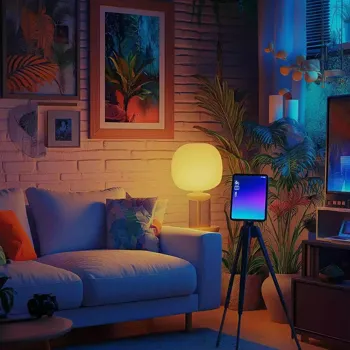Unveiling the Impact of Technology on Mental Health: Dive into 7 Crucial Insights. Explore the intersection of tech and well-being
In today's digital age, technology has become an indispensable part of
our lives. From smartphones to social media, we are constantly connected and bombarded with information. While technology offers numerous benefits, it's crucial to examine its impact on our mental health.
It's time to ponder, are we wielding technology, or is technology wielding us? Seven key discussions around this interplay can offer valuable insights.
Managing "always-on" culture for mental well-being
One vital discussion revolves around the "always-on" culture. With constant notifications and the pressure to respond instantly, individuals can experience heightened stress and anxiety. The boundaries between work and personal life blur, leading to burnout and a sense of being overwhelmed.
Consider setting distinct boundaries for your digital presence; silence notifications during meals or designate specific times for checking emails to reclaim moments of peace. Remember, our minds need downtime to recharge and function optimally.
Social media's negative impact on self-esteem and body image
The impact of social media on self-esteem and body image is another critical area. The curated and often unrealistic presentations of others' lives can fuel feelings of inadequacy and social comparison. Cyberbullying and online harassment further exacerbate these negative effects.
Cultivating a critical eye towards online content, acknowledging its often manufactured nature, and focusing on internal validation can mitigate these harms. You are more than your social media presence.
Tech can worsen mental health; limit screen time for well-being
A third pertinent discussion surrounds the potential for technology to exacerbate existing mental health issues. Excessive screen time and social media use have been linked to increased symptoms of depression and anxiety, particularly in young people.
While correlation does not imply causation, it is essential to be mindful of the time invested in digital platforms and its effect on overall well-being. Prioritizing offline activities and fostering real-world connections can counterbalance these effects.
Rise of digital addiction: dopamine-driven loops lead to compulsive behaviors
The rise of digital addiction is a fourth prominent area of concern. The dopamine-driven feedback loops engineered into many apps and platforms can lead to compulsive behaviors and a detachment from reality.

This can manifest in various forms, such as gaming addiction, social media addiction, and internet addiction. Self awareness is key. Monitoring your usage patterns, setting time limits, and seeking professional help if needed are crucial steps.
Technology democratizes mental health care access
A fifth important conversation focuses on the opportunity that technology provides. It can be a vital tool for enhancing mental health care. Teletherapy, online support groups, and mental health apps offer accessible and affordable avenues for seeking help.
These resources can be particularly beneficial for those living in remote areas or facing stigma around mental health. Technology, when used responsibly, can democratize access to mental health services.
Tech's blue light disrupts sleep; limit screens for better rest
A sixth key discussion involves the impact of technology on sleep. The blue light emitted by screens can interfere with melatonin production, disrupting sleep patterns and leading to insomnia. Poor sleep quality, in turn, can negatively impact mood, concentration, and overall mental health.

Try limiting screen time before bed and establishing a relaxing bedtime routine to promote restful sleep. Creating a sleep sanctuary free from digital distractions can significantly improve your sleep hygiene.
Importance of digital literacy for responsible technology use
The final discussion point centers on the importance of digital literacy and responsible technology use. Education on media literacy, online safety, and the psychological effects of technology can empower individuals to make informed choices about their digital habits.
Promoting digital well-being should be a shared responsibility, involving parents, educators, and technology companies. We can equip ourselves, and the coming generations, with the tools to navigate the digital landscape responsibly.
AI Generated Content. Glance/InMobi shall have no liability for the content



















